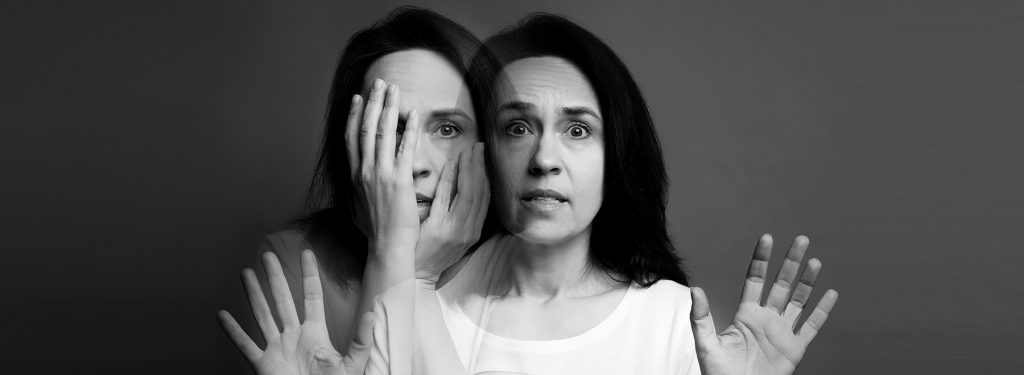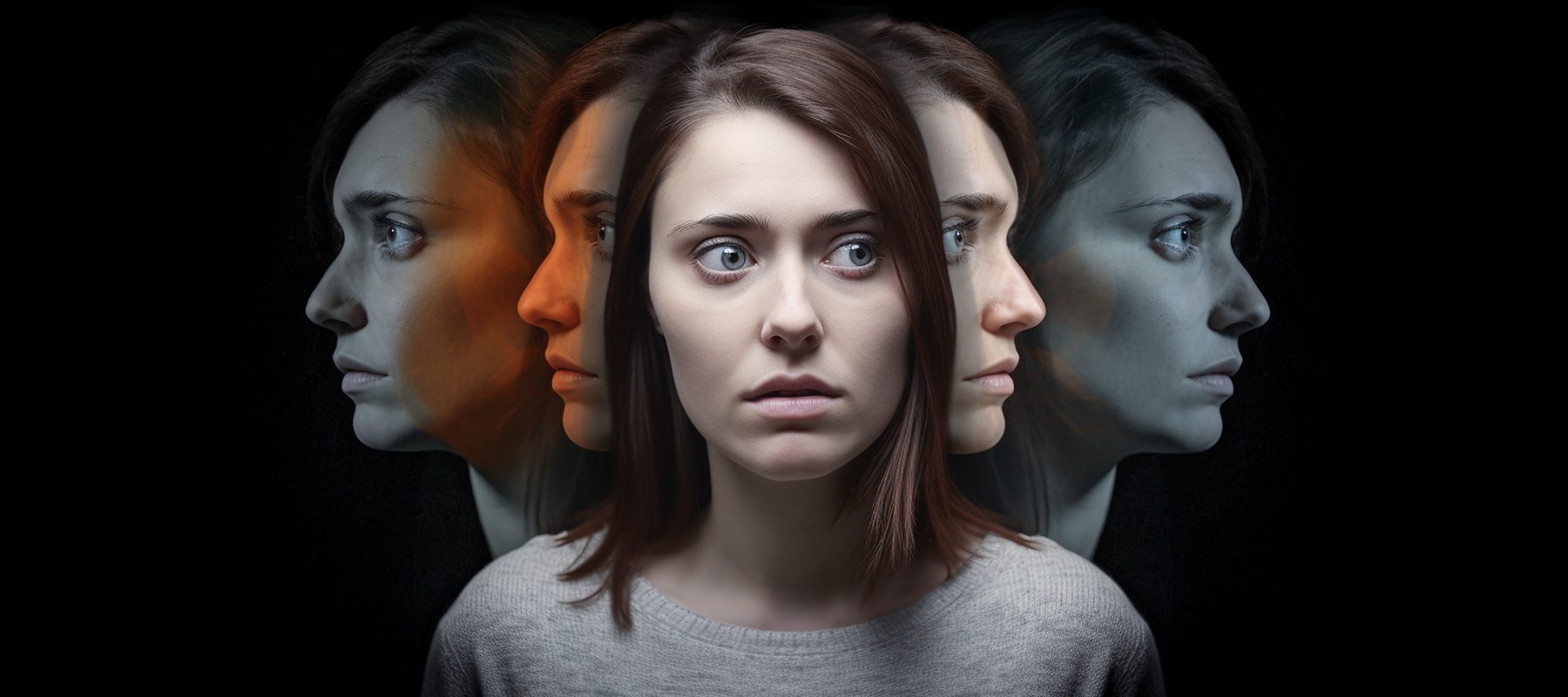Bipolar Disorder is a severe mental disorder, diagnosed by a particular symptom like frequent mood swings that contain mania or activeness and Depression. A survey report says more than 2 million people worldwide get diagnosed with Bipolar Disorder. Although this Disorder is a severe mental condition, however, very few people know what bipolar disorder is. Here, we would like to enlighten them about Bipolar Disorder.

A person with Bipolar Disorder experiences two phases. One is mania or hyper mania, where a person feels highly energized, hyperactive, and hugely impatient. In this phase, they often overwork, do not sleep, and stay hyperactive continuously. On the other hand, There is another phase where people feel extremely low, neglecting their everyday work, avoiding all kinds of social contact, and feeling hopelessness for the entire time. Beyond mood fluctuation, there is more to know about Bipolar Disorder. Therefore, this article will discuss the types, symptoms, causes, and treatment approaches of Bipolar Disorder.

Types of Bipolar Disorder
People who are curious to know what it is Bipolar Disorder must know that Bipolar Disorder is divided into three particular types. However, very few people know about these different types of Bipolar Disorder.
Bipolar Disorder Type 1
In this phase, people suffer from excessive Bipolar Disorder. This type involves several episodes of mania. With time, these manic episodes become so intense that a patient might require immediate hospitalization. This phase typically lasts for 7-10 days. In this phase, people often don’t get enough sleep. They overwork, overtalk, and become overly expressive. Such hyper-activities start affecting their daily functional abilities. Sometimes, a person with Type 1 Bipolar achieves a spontaneous recovery. On the other hand, some patients might require psychotropic medications to cope with these manic episodes.
Bipolar Disorder Type 2
Bipolar Disorder is another type where a person feels excessively depressed, unable to perform regular activities, and loses all interest in social activities. These episodes are often characterized by hypomania. However, these symptoms are less persistent and intense than in the type 1 phase. It typically lasts for seven days and generally doesn’t require hospitalization.
Cyclothymia
Often, mood swings characterize Cyclothymia. However, here, the episodes involve mild Depression or hypomania. Here, the moods fluctuate between hypomania and slight Depression. This phase lasts a minimum of 1 year but doesn’t require immediate hospitalization.

Symptoms of Bipolar Disorder
If you have ever wondered what Bipolar Disorder is, then there is a quick and straightforward answer. It’s a mood disorder where people experience frequent mood fluctuations. Here, we are listing some of the most commonly seen bipolar symptoms. However, the symptoms may differ from person to person.
Bipolar Disorder Type 1 (Manic phase)
- Increased energy level is one of the certain symptoms of Bipolar disorder. But this symptom doesn’t persist longer.
- Restlessness and lack of sleep
- Over enthusiasm
- Impulsivity
- Risky behaviors
- Racing thoughts
Bipolar Disorder Type 2 (Depressive phase)
- Continuous sadness
- Feeling of hopelessness
- Losing interest in all kinds of social activities
- Excessive fatigue
- Lack of sleep
- Oversleeping
- Loss of energy and appetite

What Are Some Relevant Causes of Bipolar Disorder?
Researchers are still looking for that one certain cause of Bipolar Disorder. However, the researchers have presented some evident causes of Bipolar Disorder. Remember, the causes may differ according to the age, events, and other circumstances.
Heredity and Genetics
Research evidence has established the fact that Bipolar Disorder can be a hereditary illness. If any of your family members have a record of Bipolar Disorder, then you and your future generation have a higher risk of this stubborn mental Disorder. Therefore, we can say that heredity and genetics have a more significant role to play here. It’s one of the root causes of Bipolar Disorder.
Stressful Circumstances
Although there is strong evidence that says stressful social or family events can contribute to the development of Bipolar Disorder. However, some researchers believe that traumatic life events often become the root cause of Bipolar Disorder.
Chemical Imbalance
According to several research reports, chemical imbalances in the brain often lead to this severe mental condition. Several neurotransmitters, such as Dopamine and Serotonin, control our emotions and help us lead a happy and healthy life. However, lack of serotonin production often leads to severe mental Disorders like Bipolar Disorder.

What are Some Effective Treatment Approaches for Bipolar Disorder?
On-time diagnosis and proper treatment can cure Bipolar Disorder. However, it’s difficult to say which treatment option will be most effective for a bipolar patient.
Psychotherapy
Psychotherapy is one of the most effective remedies for bipolar patients. This therapeutic approach aims to treat a patient by identifying the root cause of abnormal behavior. The therapist encourages patients to talk about their thoughts, feelings, and emotions. It allows a patient to talk about the darkest thoughts they have been experiencing, disturbing their regular thinking pattern. Also, the therapist teaches some effective coping strategies like deep breathing, mindfulness, and meditation, helping in managing the symptoms of Bipolar Disorder.
Antipsychotic Medications
A person with manic episodes often gets prescribed certain antipsychotic medicines. Such medications help to control manic episodes and calm down a person with Hypermania. From managing the feeling of restlessness to improving sleeping patterns, these medications can work wonderfully if prescribed by a professional psychiatrist.
Antidepressant Medicines
Although there are significant debates regarding the effectiveness of antidepressants in treating Bipolar Disorder, A mental health professional often prescribes antidepressant medicines during the depressive phase. These medicines boost the production of specific neurotransmitters like serotonin, stabilize mood, and offer tranquillity. Proper dosage of antidepressants also improves sleep quality and appetite. Hence, a lot of psychiatrists often prescribe antidepressant medicines to reduce the symptoms of Depression.

Final Thoughts
Bipolar Disorder is known as a chronic mental illness, often diagnosed by the most common symptoms like hypermania and intense Depression. Although this mental illness produces some daily life challenges, however with the right treatments and proper support, one can achieve a speedy recovery. Also, remember to reach out to the mental health professionals and talk about the episodes you have been experiencing. Let the experts help you to fight against this stubborn mental illness.
Stay informed with health and wellness blogs at World of Heal. Interested in guest posting? Contact us at affiliates[@]prasarnet[.]com to collaborate.

Sheila is a creative content writer and publisher of The Smile Story. With experience working with various multispecialty clinics and hospitals, she is dynamic in providing health-related guest posting services, offering insightful and impactful content.













